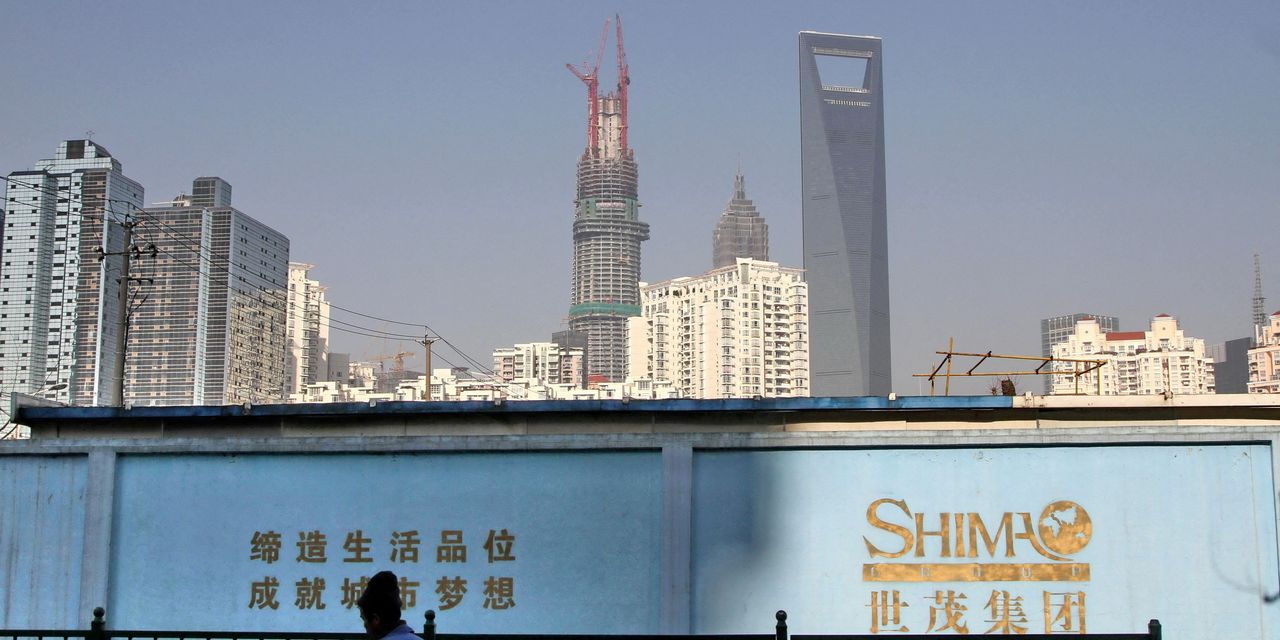
On Friday, several of Shimao’s dollar bonds were quoted at less than 40 cents on the dollar, indicating serious doubt that creditors won’t be repaid in full. The selloff represents a sharp comedown for the company, which as recently as November held investment-grade status with two of the world’s big credit-rating agencies.
Shimao, which went public in Hong Kong in 2006, develops apartments, hotels, offices and commercial properties in China. Chairman and founder Hui Wing Mau controls the company, with a near-64% stake.
Concerns about Shimao’s financial health have built rapidly, and were partly fanned this week by news about missed payments on trust loans, a form of shadow financing in China that is popular with the country’s property companies.
A Shimao subsidiary on Friday sought to dispel some of those concerns, saying it hadn’t defaulted on any public-market debts, although it was facing some liquidity pressure. The unit vowed to drum up sales, collect receivables, dispose of assets, and communicate better with investors.
It said it owed a trust lender about 645 million yuan, the equivalent of about $101 million. Most of that sum is due in March, the subsidiary said, but about $24 million was due on Dec. 27 and hasn’t yet been paid.
Shimao’s dollar bonds were bid at between 34.5 and 40 cents on the dollar Friday, Tradeweb data showed. Prices have dropped by more than 20 cents on the dollar this week. The company has roughly $6.4 billion of dollar bonds outstanding, public disclosures indicate.
China’s property sector has been reeling from government curbs on borrowing and declining home sales. The industry’s biggest offshore borrowers, Kaisa Group Holdings Ltd. and China Evergrande Group, are set for parallel debt workouts. Meanwhile, a bond-market selloff has all but shut the market for new issuance, depriving developers of a crucial means of refinancing coming dollar debt.
“There is a collapse in confidence amongst the onshore banks, trust-loan providers and investors towards the private sector, particularly the property sector,” said Dhiraj Bajaj, fund manager and head of fixed income for Asia at Lombard Odier. The sector’s crash crunch would make lenders reluctant to roll over existing debts, he said.
S&P Global Ratings downgraded Shimao to junk in November, and cut its rating again last month, citing pressure on the company’s liquidity due to tight financing channels and slowing sales. Likewise, Fitch Ratings cut Shimao below investment grade in December.
Shimao has about $1.7 billion in offshore bank loans and bonds due this year at the holding company level, according to Moody’s Investors Service. The figures include debt which is puttable by investors, meaning they have the right to ask the company to buy it back.
The developer’s Hong Kong-listed stock fell 5.4% Friday to end trading at 4.70 Hong Kong dollars, equivalent to 60 U.S. cents, its lowest closing level since 2009, FactSet data showed. It has nearly halved in the past month.
Some of the sector’s strongest players have been less affected by the market turmoil. A bond due in 2024 issued by Country Garden Holdings Co. , for example, was quoted at about 96% of face value on Friday.
—Anniek Bao contributed to this article.
Write to Frances Yoon at [email protected]
Copyright ©2022 Dow Jones & Company, Inc. All Rights Reserved. 87990cbe856818d5eddac44c7b1cdeb8








